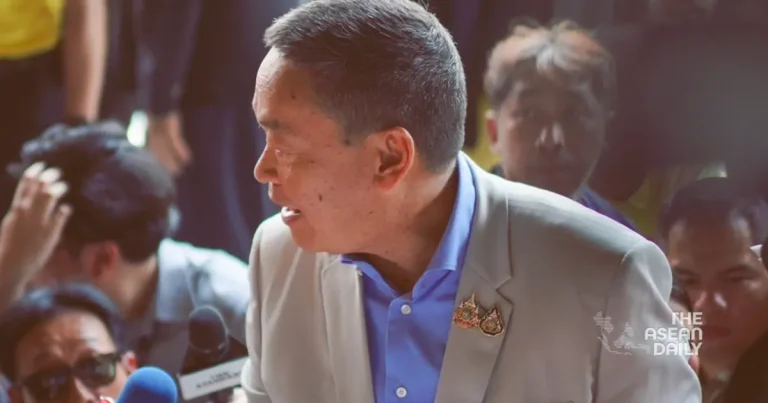14-8-2024 (BANGKOK) Thailand has been plunged into further political turmoil as Prime Minister Srettha Thavisin was removed from office following a Constitutional Court ruling that found him in violation of the constitution. The court’s decision, delivered on Wednesday, 14 August, has deepened the kingdom’s ongoing political crisis, just a week after the dissolution of the popular Move Forward Party.
Srettha, a real estate magnate who had only recently stepped into the political arena, was found to have breached ethics rules by appointing Pichit Chuenban, a lawyer with a criminal record, to his Cabinet. The court’s ruling now necessitates the formation of a new government, with the ruling Pheu Thai-led coalition expected to nominate a fresh candidate for prime minister. The nomination will be subject to a vote in Thailand’s 500-seat parliament.
This ruling marks yet another episode in Thailand’s fraught political landscape, where the establishment—comprising military, royalist, and business elites—has repeatedly clashed with forces advocating for change. Over the past two decades, the country has seen numerous lawmakers banned, political parties dissolved, and prime ministers ousted either through coups or court rulings.
Srettha’s brief tenure as prime minister began in August 2023, ending a three-month political deadlock following the general elections. His administration, however, faced declining public support amid challenges to his economic policies and growing opposition. Srettha had championed a 500 billion baht ($13.8 billion) digital wallet initiative aimed at revitalising the economy, though the plan remains unimplemented.
The case against Srettha was initiated in May by a group of 40 military-appointed ex-senators who opposed the Cabinet appointment of Pichit Chuenban, a close associate of former Prime Minister Thaksin Shinawatra. Pichit, who had served six months in prison in 2008 for attempting to bribe Supreme Court officials, has since resigned from his position.
With Srettha’s removal, Thailand faces renewed political uncertainty as the Pheu Thai party, which has its roots in the legacy of the ousted Thaksin, navigates the task of selecting a new leader. Among the potential candidates is Paetongtarn Shinawatra, Thaksin’s youngest daughter, who may seek to continue her family’s influential role in Thai politics.
The recent dissolution of the Move Forward Party, which had won the most seats in last year’s election, adds further complexity to the situation. The party, known for its progressive reform agenda, was accused by the Constitutional Court of undermining the monarchy, leading to its disbandment. Despite these setbacks, the party’s former members have already regrouped under a new name, determined to continue their political fight.




